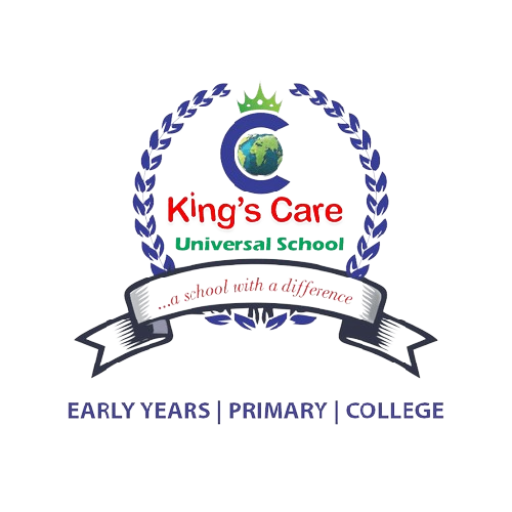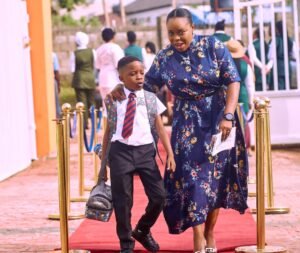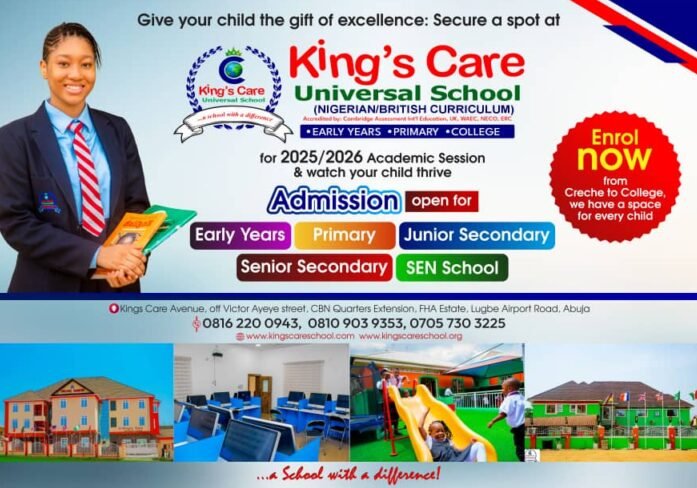In today’s fast-paced world, there’s growing pressure on children to meet academic expectations early. But at Play Away, we believe childhood is not a race — it’s a journey of joyful discovery. That’s why we champion one of the most effective, natural, and research-backed approaches to early childhood education: learn through play. Vist Website kingscareschool.org
From Lagos to Abuja, Nigerian parents are beginning to embrace the idea that play isn’t just for fun — it’s the foundation of deep, lasting learning.
What is the Play Away Method?
The Play Away Method is a child-centered educational approach that places play at the heart of learning. We don’t just add play to the school timetable — we design the entire learning environment around it.
Through carefully crafted spaces, hands-on tools, and skilled guidance, children learn through play by exploring, imagining, building, and interacting with others.
Our method is not only aligned with global best practices, but tailored for the Nigerian child — blending cultural familiarity with world-class early childhood education strategies.
Why Learn Through Play Works
Research has proven again and again that children learn through play more effectively than through passive instruction.
According to the LEGO Foundation and global educators like Maria Montessori and Jean Piaget, children’s brains are wired for exploration. When we allow children to play with purpose, they naturally develop critical skills:
Communication and collaboration
Creative thinking
Early numeracy and literacy
Problem-solving and resilience
Emotional regulation and self-confidence
At Play Away, we bring this philosophy to life in every classroom and playground. Instagram Page
How the Play Away Method Works
1. Child-Led Activities That Build Confidence
Rather than telling children what to do, we create environments where they make choices, lead activities, and guide their own learning. Whether it’s building with blocks or organizing a pretend party, they learn through play by making decisions and solving problems on their own.
This builds confidence, independence, and a genuine love for learning.
2. Role Play and Real-World Exploration
Role play is more than dress-up — it’s practice for life. From “market women” and “teachers” to “doctors” and “construction workers,” children step into different roles to understand their world.
Through these play scenarios, they develop empathy, language skills, and cognitive flexibility.
This is one of the most powerful ways to learn through play, as it connects imagination with real-world understanding.
3. Integrated Learning — Literacy, Numeracy, and More
We don’t separate play from learning — we blend them. Children explore letters while naming animals in a story corner, learn counting while shopping with play money, or discover science by playing with water, magnets, and light.
They learn through play without even realizing they’re learning — and that’s the magic.
4. Indoor and Outdoor Play That Supports the Whole Child
Our learning environments are designed to support mental, physical, and emotional growth.
Sensory play areas help with fine motor skills and focus
Gross motor zones (like climbing, jumping, and balancing) build strength and coordination
Quiet zones help children self-regulate and reflect
Outdoor exploration connects them with nature and encourages problem-solving
All of these are essential parts of our commitment to helping children learn through play in diverse, enriching environments.
Why the Play Away Method Matters in Nigeria
In many Nigerian homes and schools, structured “sit-down” learning is still the norm. But studies show that in the early years (ages 0–6), children retain more when they’re actively engaged rather than passively listening.
By encouraging children to learn through play, we:
Build strong communication and social skills that last a lifetime
Develop emotional intelligence in a safe, nurturing setting
Lay a solid foundation for literacy and numeracy without pressure or fear
Nurture creative thinking and innovation, which Nigeria’s future leaders will need
Support resilience in a healthy, emotionally secure environment
As parents, educators, and a society, we must recognize that the first years of a child’s life are critical — and what they do in those years should be joyful, not stressful.
The Role of Educators in the Play Away Method
At Play Away, educators are not just teachers — they are guides, observers, and co-learners. We watch carefully, ask thoughtful questions, and provide meaningful support. We don’t interrupt the learning process with over-instruction.
Instead, we build trust, encourage exploration, and celebrate every step of growth.
As an Early Years Educator, I believe in helping children thrive at their own pace — not by rushing them, but by walking with them through every moment of discovery.
A Word from the Educator
“I see every child as a unique gift with a unique rhythm. My passion is to help them shine by learning in ways that feel natural, joyful, and exciting. I believe every Nigerian child deserves to learn through play — and at Play Away, we make that a beautiful reality.”
– Kunlipe Folasade Juliet
Early Years Educator, Play Away
Final Thoughts: Give Your Child the Gift of Playful Learning
When we give children the space to play, we give them the tools to think, feel, express, and grow. Whether you’re in Lagos, Abuja, or anywhere across Nigeria, now is the time to embrace the truth:
The best way to build brilliant children is to let them learn through play.
Visit us today or reach out to learn more about the Play Away Method and how it’s transforming early childhood education for Nigerian families.





